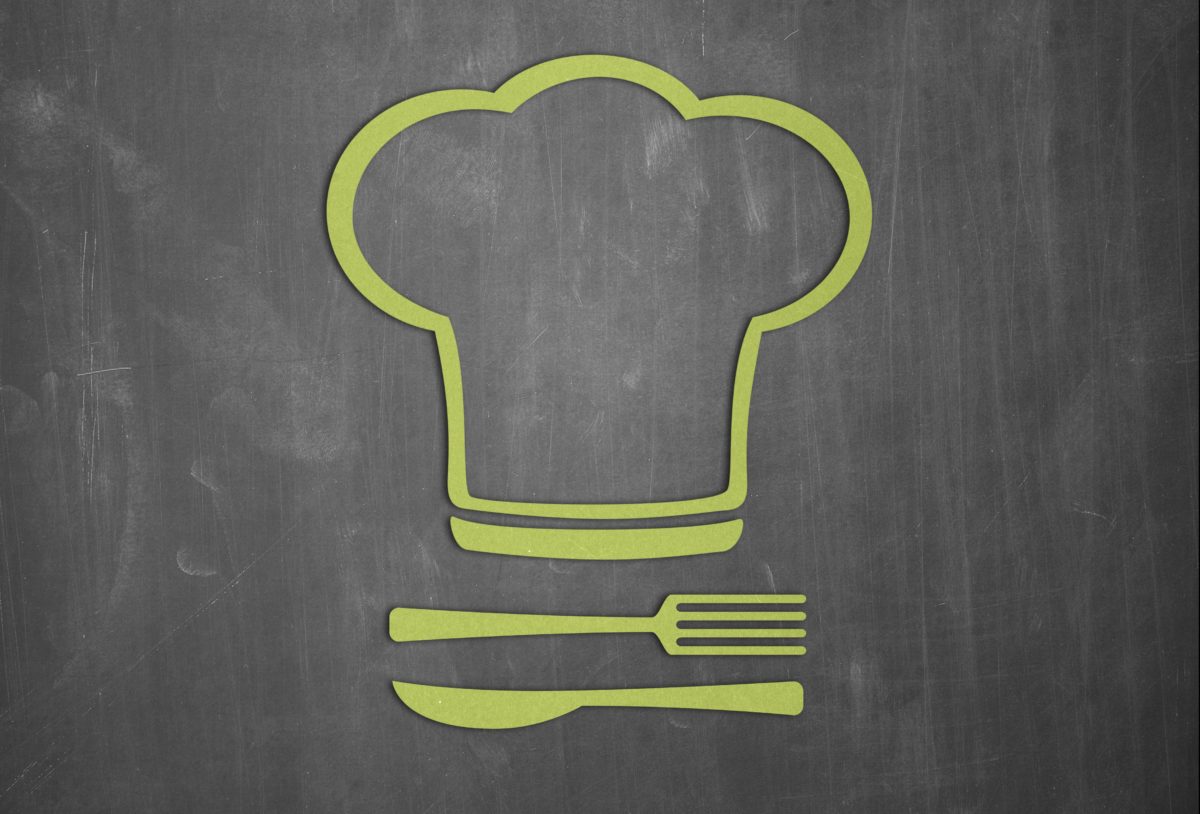One of the first lessons a new culinary student receives isn’t what you might think. It doesn’t involve knife skills or cooking techniques, ingredients or equipment identification. Instead, students are taken on an informational journey, rich in the history from which the modern art of cookery came, exposing them to the fundamentals, classical techniques, and systems set by Marie-Antoine Carême (1784-1833), and Georges-Auguste Escoffier (1847-1935) – unfamiliar names to new culinary students, but chefs who set standards that are upheld today.
Before and during the culinary reigns of Carême and Escoffier, before organized culinary schools, and before cookbooks and cooking shows saturated pop culture, coveted apprenticeships were the only means for learning the kitchen brigade, practicing and fully mastering myriad cooking methods and the various cook stations, as well as developing important communication skills, time management skills, and leadership skills.
With the exception of a few hands-on artisan crafts that still employ apprentices, like glass blowing or metal work, the traditional apprenticeship has become nearly extinct or has been replaced with modern-day, short-stint externships. Organizations like the American Culinary Federation (ACF) however, are keeping the apprentice tradition going.
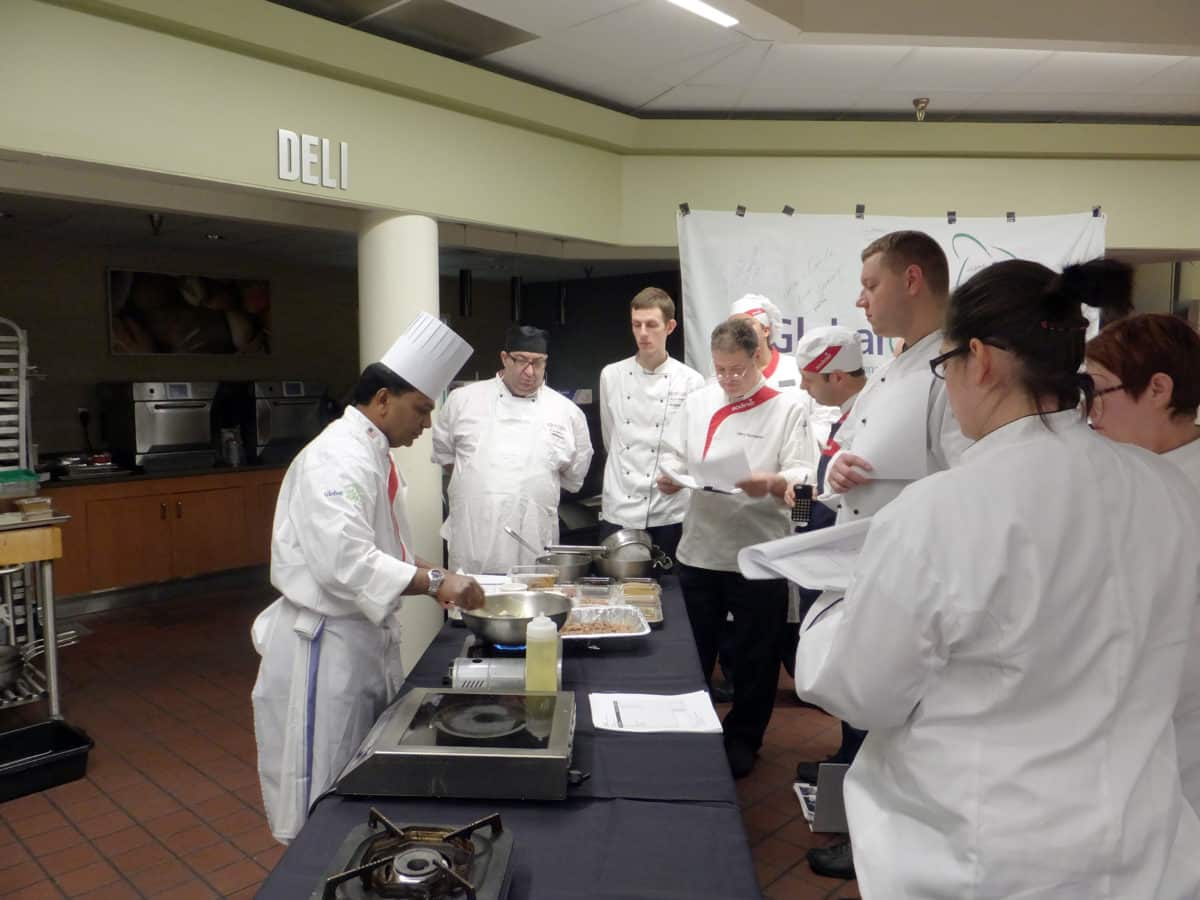
“I did not attend culinary school,” explains Chef Mitchell Thomas Nelson, who graduated from the Sea Island, Georgia ACF apprenticeship program in 2013 and works as Chef de Partie for banquets at the same location. “I have always been a hands-on learner, so [traditional] school for me was a very difficult environment. In 2010, I moved to Sea Island from Michigan through recommendation of a chef mentor, and have been here since continuing my education as a cook and as a chef in the industry.”
The ACF apprenticeship programs were launched in 1974 through the American Culinary Federation Education Foundation (ACFEF), establishing a set of national guidelines for culinary apprenticeship standards that are registered with and recognized by the U.S. Department of Labor. They currently offer 41 programs across the United States.
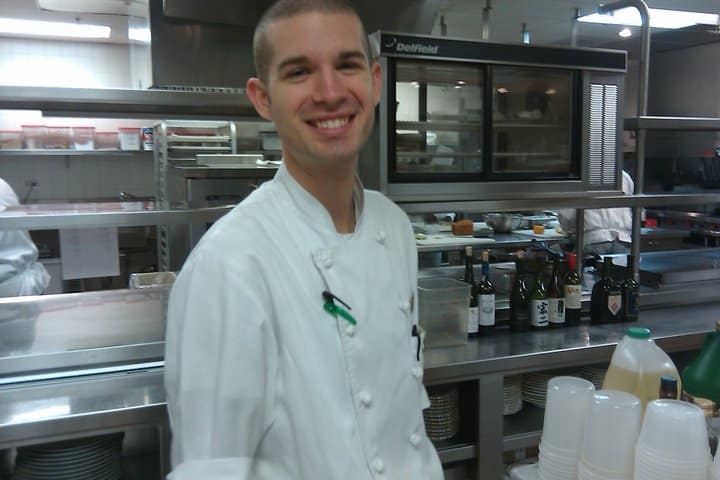
“There is no training like on-the-job training,” says Nelson. I loved it, still do, especially when externs come from culinary schools and they think they know everything. We put them on the line for one night and they don’t expect the intensity; it’s not as intense in the classroom. I would always suggest someone join an apprenticeship before going to school.”
ACF approaches their apprenticeships in much the same way as Careme and Escoffier, with the type of hands-on learning lauded by Nelson through an “earn while you learn” opportunity. Apprentices receive a paycheck during their apprenticeships, as well as mentoring from qualified, professional chefs, while learning culinary skills that are transferrable within the industry, the opportunity to master classical and foundation cooking and baking skills by rotating through different stations. There is also opportunity to develop basic principles of nutrition and dietetics, proper food safety and sanitation, all while gaining an understanding of management and supervisory knowledge and strong work ethic in preparation for a progressive career in the culinary industry. The program also prepares apprentices for their first professional certification through ACF – Certified Culinarian®.
Following a different path than Nelson, Chef Ryan Manning, ACF Central Florida Chapter, attended culinary school and an apprenticeship program at Colonial Williamsburg, completing the program in 2012. Now a sous chef with the Ritz-Carlton Grande Lakes in Orlando, Florida, Manning is grateful for both experiences, however values the rotation training and repetition from his apprenticeship training.
“The advantage of an apprenticeship is the hands-on experience in all aspects of culinary — from being the commissary butcher, overnight bakery rotation, pastry shop, sauté, grill, lead line, etc.,” says Manning. “Also learning to lead the classes of apprentices that came after mine; our program had a hierarchy based on the freshman, sophomore, junior, and senior class statuses. No culinary school in the world can compete with an apprenticeship program in which you get to produce and learn at the same time. I butchered over a thousand of any one type of meat in the butcher rotation. Most culinary schools let you try once or watch while the instructor demos.”
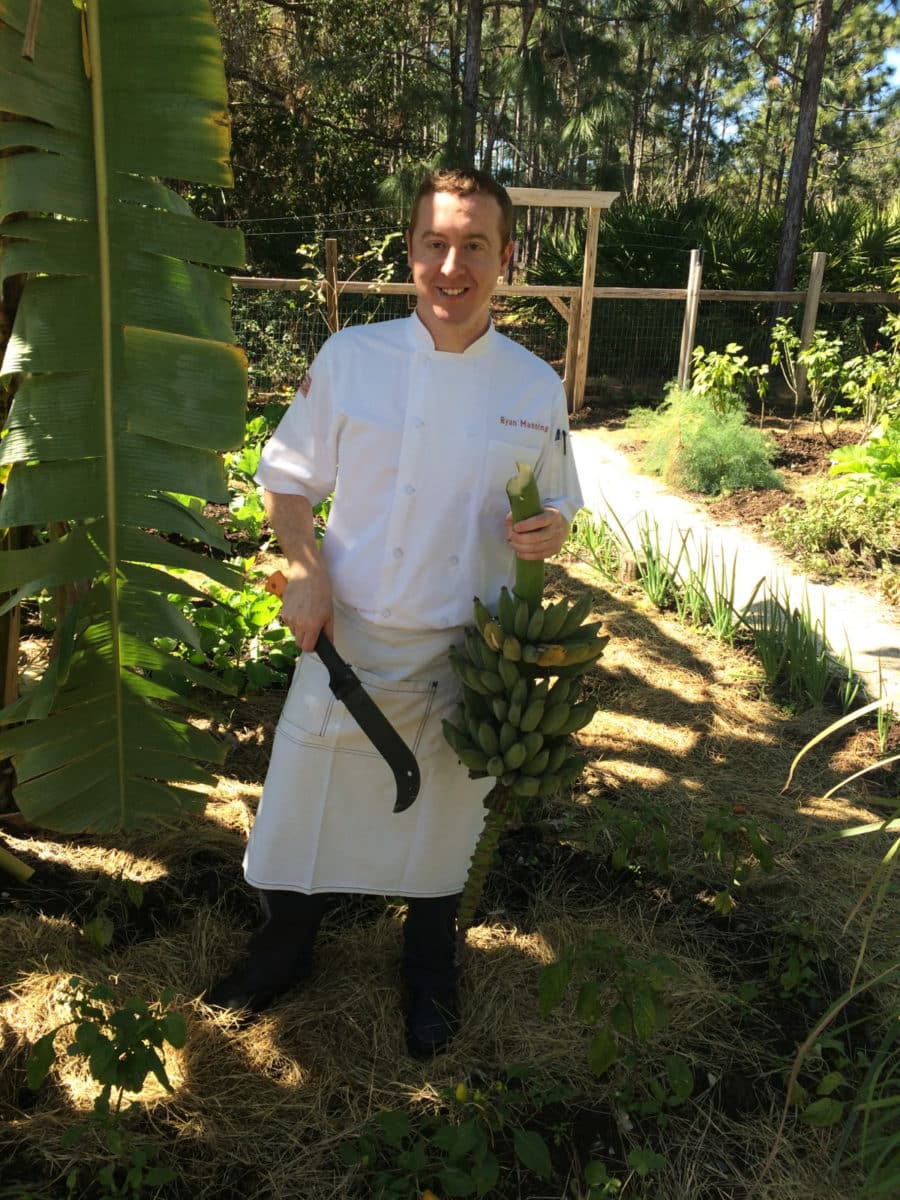
Chef Stephen Losee oversees the 4000-hour, 2-year ACF apprenticeship program at The College of William & Mary in Williamsburg, Virginia. In partnership with Sedexo, Chef Losee supports 40 apprentices across 18 food service outlets throughout the campus, providing apprentices with opportunities to experience everything from quick service and catering to bistro-style and food truck service.
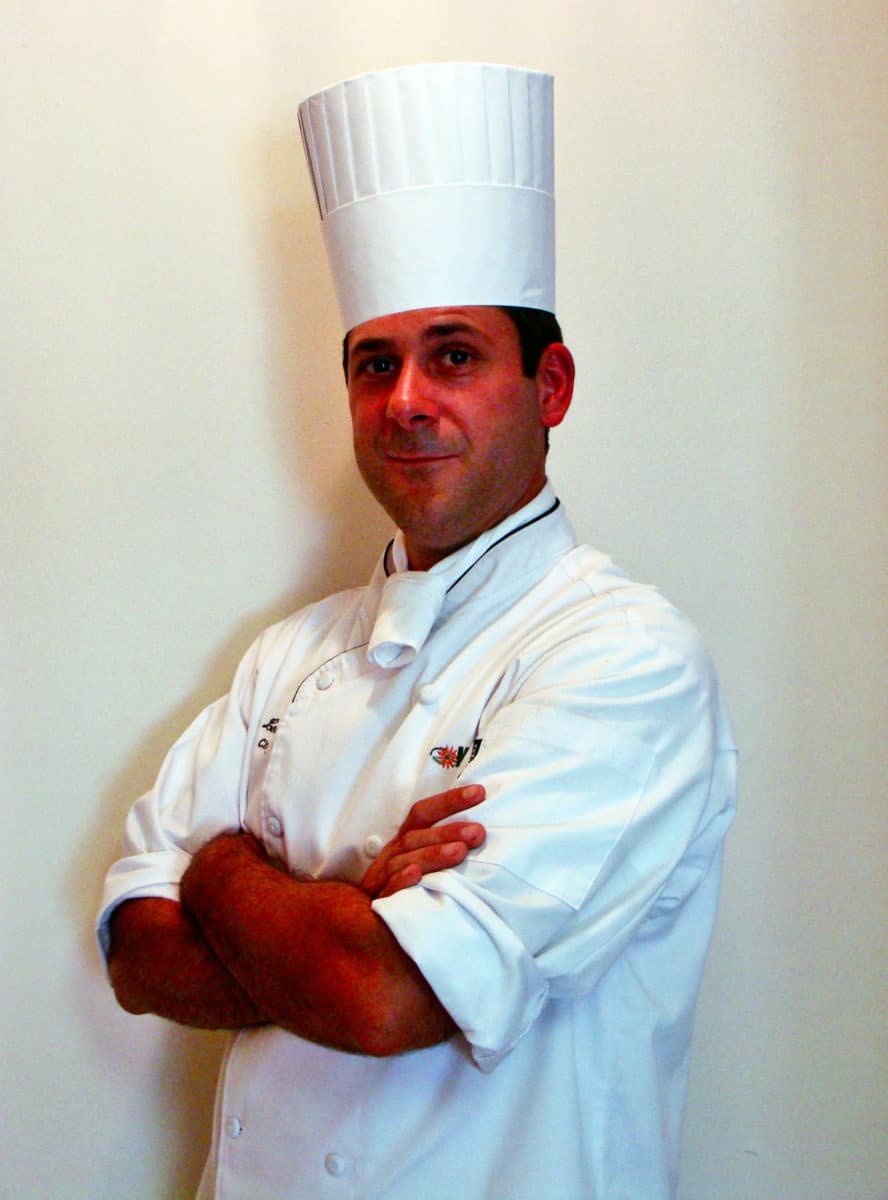
“Our program is fairly new,” says Losee. “We started in February 2015 with a core group of employees who will complete the program in 2017, however anyone local can apply for the program just like they would any job through the college.”
Losee sees the vision and long-term of the program as well, “Although our first group of apprentices will graduate in two years, we encourage them to keep going – it doesn’t have to stop there. They can go on to earn additional certifications through the ACF, and to keep learning and growing. That will, in turn, encourage and motivate our new apprentices, too.”
“From the perspective of starting the program,” explains Losee, “ACF made the process easy for us. We set up an initial phone call to learn more and gauge interest, and continued to move forward with the process, with ACF there to assist every step of the way. They assisted with our initial registration of students, and support our online portal for recording work hours for each apprentice.”
Because the apprenticeship programs are often sponsored, there is minimal investment or debt for the apprentice. “The program I graduated from involved going to culinary school one day each week. The classes were all paid for by my apprenticeship program so I graduated without any debt,” says Manning. Nelson also graduated from his apprenticeship debt-free, as will apprentices enrolled in the programs at William & Mary through their sponsorship with Sodexo.
Both Nelson and Manning connect their career advancements to their apprenticeship experience, “The program has been a great help,” said Manning. “It has advanced me beyond many of my peers who went a different route. It has taught me to work hard and sometimes suck it up when times get tough.”
Nelson agrees, “The apprenticeship program has definitely helped my career. Just like anything else, you get out of it what you put in it, so it’s up to you to make sure you get the most of it. My apprenticeship got me into the door at a great resort and took me from not knowing anything to where I am today. I received two promotions within seven months of graduating because the mindset of an apprentice never really leaves you. You are always constantly looking to get better and learn more as you go.”
For more information about becoming an apprentice or to begin your own program, log on to the American Culinary Federation web site, contact ACF at apprenticeship@acfchefs.net or call 904-484-0217. ![]()
